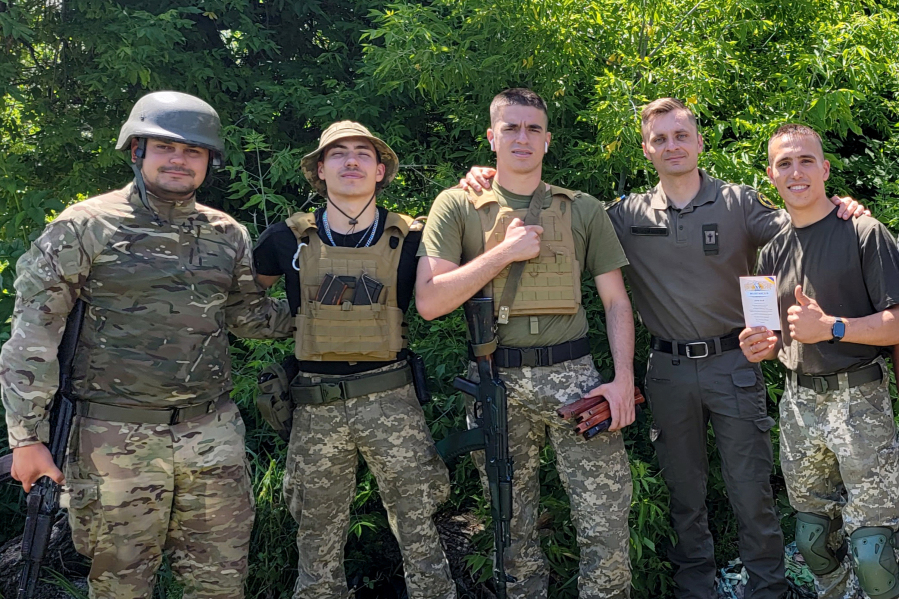When he hears that wicked whistling sound overhead, Mikhail Pavenko knows he’s only got a second or two to hit the ground.
“Get low. Kiss the Earth. That’s what they teach you to do when there is shelling,” Pavenko said. “Numerous times we had to take cover from Russian shelling.




